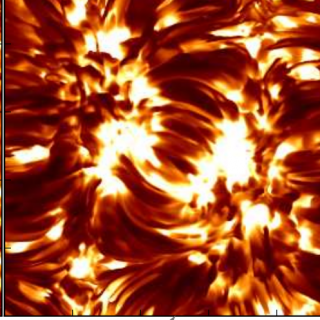Bibcode
Asensio Ramos, A.; Petit, P.
Bibliographical reference
Astronomy and Astrophysics, Volume 583, id.A51, 8 pp.
Advertised on:
11
2015
Journal
Citations
10
Refereed citations
10
Description
Aims: We develop a fully Bayesian least squares deconvolution
(LSD) that can be applied to the reliable detection of magnetic signals
in noise-limited stellar spectropolarimetric observations using
multiline techniques. Methods: We consider LSD under the Bayesian
framework and we introduce a flexible Gaussian process (GP) prior for
the LSD profile. This prior allows the result to automatically adapt to
the presence of signal. We exploit several linear algebra identities to
accelerate the calculations. The final algorithm can deal with thousands
of spectral lines in a few seconds. Results: We demonstrate the
reliability of the method with synthetic experiments and we apply it to
real spectropolarimetric observations of magnetic stars. We are able to
recover the magnetic signals using a small number of spectral lines,
together with the uncertainty at each velocity bin. This allows the user
to consider if the detected signal is reliable. The code to compute the
Bayesian LSD profile is freely available.
Related projects

Magnetism, Polarization and Radiative Transfer in Astrophysics
Magnetic fields pervade all astrophysical plasmas and govern most of the variability in the Universe at intermediate time scales. They are present in stars across the whole Hertzsprung-Russell diagram, in galaxies, and even perhaps in the intergalactic medium. Polarized light provides the most reliable source of information at our disposal for the
Ernest
Alsina Ballester